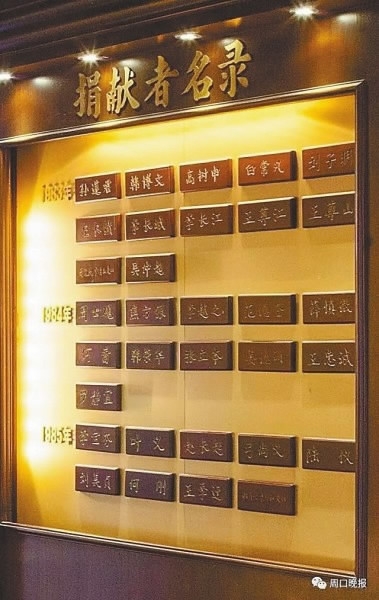For the first time in its history, the Palace Museum, in the heart of Beijing, announced on Friday a scheduled memorial service for He Gang, a selfless contributor to the site.
He, a 54-year-old farmer from central China’s Shangshui County, Henan Province, had lived a poor, but virtuous life before being killed in an accident at a construction site two weeks ago. The Palace Museum heard of He's death and published a eulogy on its website, and promised to hold a memorial service soon.

He Gang stands in front of his house. / Photo via Internet
“He was a simple and unadorned soul,” Liang Jinsheng, former director of the Palace Museum’s Collection Management Department said. “He stood a good example to us all for the state’s heritage conservation work.”
He Gang's selfless contribution
In 1985 He discovered a large clay pot full of gold treasures and silverware, such as vases and cups, in his own yard.
At a time when China’s rural average annual income stayed at 397 yuan (some 142 US dollars in 1985) and the urban average annual income stayed at 752 yuan (some 269 US dollars in 1985), He refused to trade the treasures for a bag of money, a good amount of money enough to change the living condition for him and his grandchildren. He, accompanied by Liu Hongen, a local Communist Party secretary who He turned to for help in the first place, went to Beijing to meet Liang.

A certification of He Gang's donation granted by the Palace Museum 32 years ago. / Photo via Henan Daily
Liang said he still remembers the thrill from 32 years ago when he met He, who brought – appraised with official authentication –19 top-class pieces of silverware that could date back to the Yuan dynasty (1271–1368 AD), including one A-class piece, 11 B-class pieces, five C-class pieces and two generals.
“He’s contributions filled a huge blank for the museum which was short in pieces from the Yuan Dynasty,” Liang admitted. “We’ve got many contributors, but few in He’s shoes did what he did before.”

He Gang's name is engraved on Jing Ren Roll. / Photo Via Zhoukou Evening Post
He’s name was engraved in a “Jing Ren Roll” – an honor roll documents the museum’s contributors.
“Never did he regret.”
Given his philanthropic action, for years He never received the good life he deserved. He’s first and second wife died of severe illness and both his parents were sick in bed. The whole family laid unbearable weight on He. To support the family and get his wife's treatment, He used to borrow all the money he could, and insisted to return it all though his lenders, including Liu, who witnessed all he’d gone through.

One of He Gang's donations. / Photo via the Palace Museum
He almost got beaten by the a successive of doom, but according to his daughter, He Hua, never once did He Gang regret turning the treasures back to the state’s hold.
Liu shared his memory when he took groceries to He and He always returned them back. “He would say he’d relied on others’ help too many times.”

Former director of the Palace Museum’s Collection Management Department Liang Jinsheng. / VCG Photo
The Palace Museum endowed two times to He’s family with 100,000 yuan (some 14,643 US dollars), expecting to ease the family's pressure. But it seemed to not be enough. “Whenever we talk on the telephone, He wouldn’t stop saying his gratitude,” Liang from the museum recalled. “But I could tell he was suffering in life very much.”
“My father said, the man who lives with morals stands firm,” said He Junqing, He Gang’s son. “If we dig out something today, we would turn in them to the state exactly like our father did.”
Admiration for goodness passes along

The Palace Museum at its visit peak. / VCG Photo
He’s story did not get heard and spread 32 years ago but managed to go virus and make an influence today. Chinese netizens have been sending regards to He and his family, admiring He’s selfless action. He no doubt had encouraged more awareness to China’s historic heritage conservation and protection work.
According to China’s Cultural Relics Protection Law, all cultural relics remaining underground or in the inland waters or territorial seas within the boundaries of the People’s Republic of China shall belong to the state.
As more and more civilians gain aware of this long career to preserve humanity’s common civilization, people in the industry suggested that museums establish an integrated process to accept donations and properly document, present contributors’ name in return.
(The Chinese average income in 1985 with input from China’s National Bureau of Statistics.)









